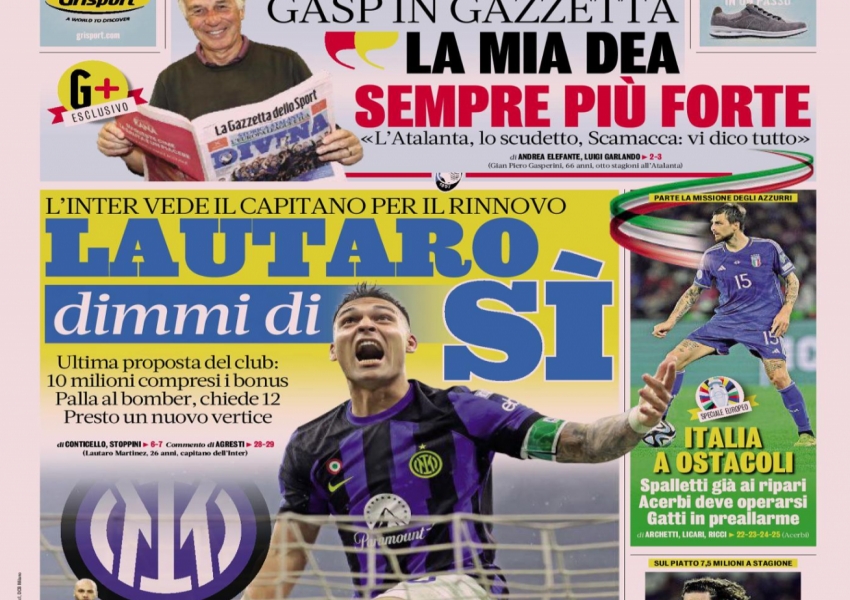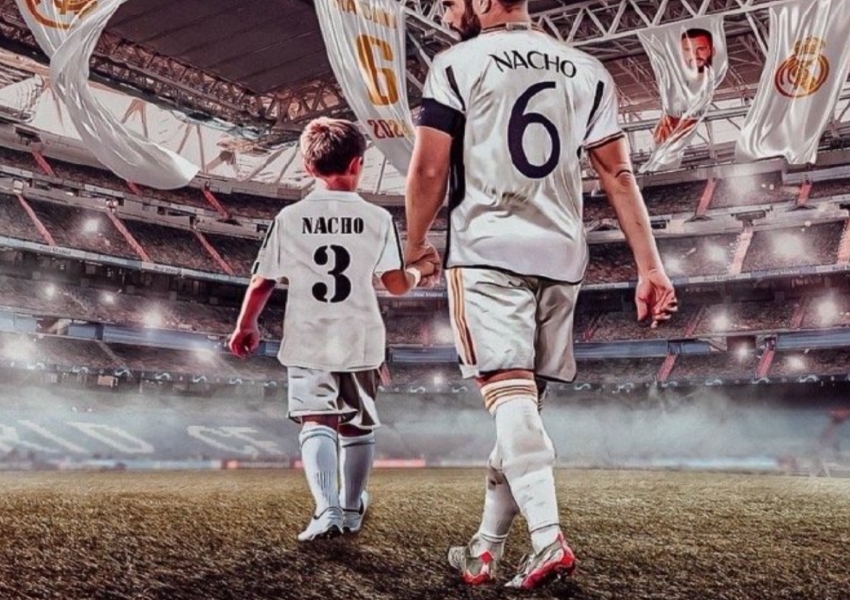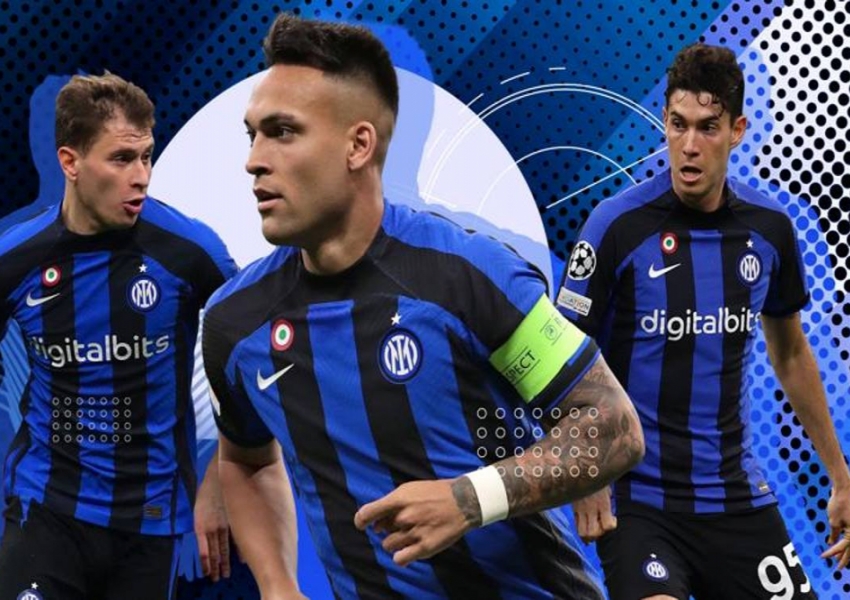The Four "Kings of Milan" Cost Inter an Extra €20 Million Annually: Reckless Spending or Smart Strategy?
In the realm of football, Inter Milan’s decision to significantly increase the salaries of four key figures—Lautaro Martínez, Alessandro Bastoni, Nicolò Barella, and coach Simone Inzaghi—has sparked a heated debate. Esteemed former Inter defender Marco Materazzi recently declared, “Lautaro, Bastoni, and Barella are the kings of Milan.” Fans on social media were quick to suggest that Inzaghi should be included in this list, recognizing his crucial role in the team’s recent successes. However, with their agent confirming a dramatic turnaround in Lautaro’s contract negotiations and Fabrizio Romano verifying the imminent announcements of Barella and Inzaghi’s extensions, Inter Milan is set to face an additional annual financial burden of over €20 million. Considering the club's high debt and unbalanced financial situation, what is the rationale behind such a move?

The Financial Details
According to La Gazzetta dello Sport, Lautaro Martínez's new contract will feature a base salary of €9 million, supplemented by easily achievable bonuses (such as reaching a certain number of goals or qualifying for the Champions League) and more challenging incentives (like winning the league title). This could effectively make him a “€10 million man.” Inzaghi’s salary will rise from €5.5 million to €6.5 million, a relatively modest increase. Barella's earnings will jump from €5 million to €7 million plus bonuses, while Bastoni’s recently announced extension doubles his base salary from €2.8 million. The cumulative effect of these raises, including taxes, will cost Inter Milan an additional €20 million per year.

The Justification
To some, this appears to be reckless spending, especially given Inter Milan’s financial struggles. Critics argue that the club should sell high-value players like Lautaro to alleviate financial pressures rather than commit to such hefty salary increases. However, assessing whether this is wasteful or wise depends on several factors, including future performance, market conditions, and the broader context in which these decisions are being made.

Strategic Stability Amid Uncertainty
The year 2024 is marked by unprecedented global uncertainty and volatility. Across the world, from the Asia-Pacific to North America, the Middle East, and the Red Sea, there have been numerous extraordinary and historical events, leading to widespread apprehension about the future. In such an unpredictable environment, Inter Milan’s strategy of minimizing changes and maintaining stability could be seen as a prudent approach.
A year or two ago, sports enthusiasts eagerly anticipated 2024, looking forward to major events like the European Championship, Copa America, Olympics, and the BRICS Games. However, recent unrest in cities like Paris and Berlin has raised concerns about the safety of athletes and the smooth execution of these events. In this climate, Inter Milan's decision to avoid significant upheavals might reduce risks and preserve the team’s competitive edge.
Competitive Advantage Through Stability
In a period of great change, stability can provide a crucial advantage. Many of Inter’s rivals, including AC Milan, Juventus, and Napoli, are undergoing substantial transitions, such as changing coaches and key players. This instability might disrupt their early-season performance, giving Inter Milan a relative advantage. Historically, success in football is not solely determined by the quality of players and coaches but also by the maturity of the system and the cohesion of the team. By maintaining stability, Inter Milan can capitalize on their rivals' potential early-season struggles.
Economic Considerations
In more stable times, evaluating team-building strategies based purely on technical and financial aspects would be straightforward. However, these are not normal times. Inter Milan itself is a source of instability, burdened by significant financial challenges. Recent reports from Bloomberg and the Washington Post highlighting Inter Milan’s rapid value growth—third fastest in Europe—hint at the possibility of an imminent change in ownership. Oak Tree Capital, the current majority owner, is unlikely to retain long-term control of the club.
This situation is beyond the control of Inter Milan’s management, including Marotta, Zanetti, and Ausilio, and certainly beyond the influence of fans. Given these circumstances, the management's decision to concede to wage demands and prioritize stability may be a strategic move to safeguard the club’s baseline performance and prepare for future uncertainties. By securing the contracts of key personnel, Inter Milan can aim for consistency and potentially challenge for trophies in the upcoming season. This stability also positions the club to better navigate the impending changes, whether they bring opportunities or challenges.
The Broader Football Landscape
The football world is undergoing significant changes, particularly in Italy and Europe. Clubs like AC Milan, Juventus, and Napoli are not only changing coaches but also undergoing strategic shifts involving key players. This broader context highlights the importance of stability for Inter Milan. European giants such as Real Madrid and Liverpool are also making substantial changes, from managerial shifts to squad overhauls. The success of these clubs will depend on their ability to integrate new elements and build cohesive systems. In this scenario, Inter Milan’s decision to avoid drastic changes and maintain their core structure could provide a competitive advantage.
The Value of Key Personnel
The importance of retaining top talent cannot be overstated. Lautaro Martínez, Nicolò Barella, Alessandro Bastoni, and Simone Inzaghi have been instrumental in Inter Milan’s recent successes. Lautaro’s goal-scoring prowess, Barella’s midfield dynamism, Bastoni’s defensive solidity, and Inzaghi’s tactical acumen form the backbone of the team. Their continued presence ensures that Inter Milan remains competitive at the highest level. The financial sacrifices made to retain them could be justified if it leads to sustained success on the pitch.
The Risk-Reward Balance
Ultimately, whether this strategy is deemed wasteful or wise will depend on future results. If Inter Milan maintains stability and performs well, the investment in salaries will be seen as a smart move. However, if the team fails to achieve its objectives, critics will view the expenditure as reckless. The club's management must balance immediate financial pressures with long-term strategic goals, navigating a path through an unpredictable landscape.
In conclusion, Inter Milan’s decision to significantly increase the salaries of four key figures represents a calculated risk. By prioritizing stability and continuity, the club aims to mitigate the uncertainties of 2024 and beyond. While this strategy carries financial implications, it also offers the potential for competitive success. In a rapidly changing football world, maintaining a cohesive and stable core could prove to be Inter Milan’s greatest asset.
Copyright Statement:
Author: mrfootballer
Source: Mrfootballer
The copyright of this article belongs to the author. Reproduction is not allowed without permission.
Recommended Blog
- Inspired by AC Milan's Serie C Application, Marotta’s New Strategy Drives Inter Milan's U23 Vision
- True Love! Inter Milan Season Tickets Sell Out in Hours, Club’s Key Concessions Warm Hearts
- Post-Messi Era: Argentina's New Blueprint – €200M Strikers Lautaro and Alvarez from Rivals to Partners
- Inter's €160 Million Duo Face Challenges: Third-Best Striker and Defensive Stalwart Struggle in Global Market
- Inter's Coaching and Transfer Departments Face Key Disagreements: Crucial Plans for Battles Against Motta, Conte, and Fonseca
- Mysterious Bigwig Visits Inter Headquarters Sparking Speculations: Icardi’s Return? Three Potential Positive Outcomes
- Zhang Kangyang's Successor Unveils Two Key Transfer Market Principles: Resolving Striker Disputes by Selling Two Players for €30M?
- Can Inter Milan Achieve the Dream of Four Number 10s at the European Championship? Barella Could Be a Surprise While Veterans Opt Out
- Inter Milan Ranks Fourth in Football Short Video Traffic: Ten Directors and New Chairman Revealed
- Inter Milan Targets Wingbacks Amid Juventus Links and La Liga Starlet
Hot Blog
- English Media: Manchester United Will Win Premier League Title in 2028! History Will Repeat Itself, Two Teams Serve as Inspirations
- 0-2 Double Defeat! China National Team Stuck at 6 Points: No More Direct World Cup Hopes, Two Crucial Matches Ahead
- 4 AM Showdown: Barcelona's Revenge Match! Win = 3-Point Lead Over Real Madrid, Key Players Rested
- China National Football Team Drops 13.6 Points, Slips to 94th in FIFA Rankings: Syria Overtakes, New 9-Year Low
- 0-0 Draw! Japan 12 Shots, 2 Missed One-on-Ones: 8 Matches, 20 Points, Group Winner, Saudi Arabia Stuck at 10 Points in 3rd
- 4-1, Double Win Over Brazil! Argentina Celebrates: World Cup Qualification Secured, 4th Team Globally to Qualify
- Real Madrid Got Lazy: 7 Kilometers Less Running in UCL! Two Superstar Spectators While Barça Outruns Them All
- United Go for Glory: Unbeaten in 10, Fueled by Kobbie Mainoo’s Return, Red Devils Eye Europa League Crown
- Champions League Classic: Barça’s Midfield Maestro Worshipped by Thousands After 11.5KM Marathon
- Champions League Semifinal Odds: Barça at 99%, Real Madrid’s Hopes Dwindle to 6%, PSG Cruise Ahead